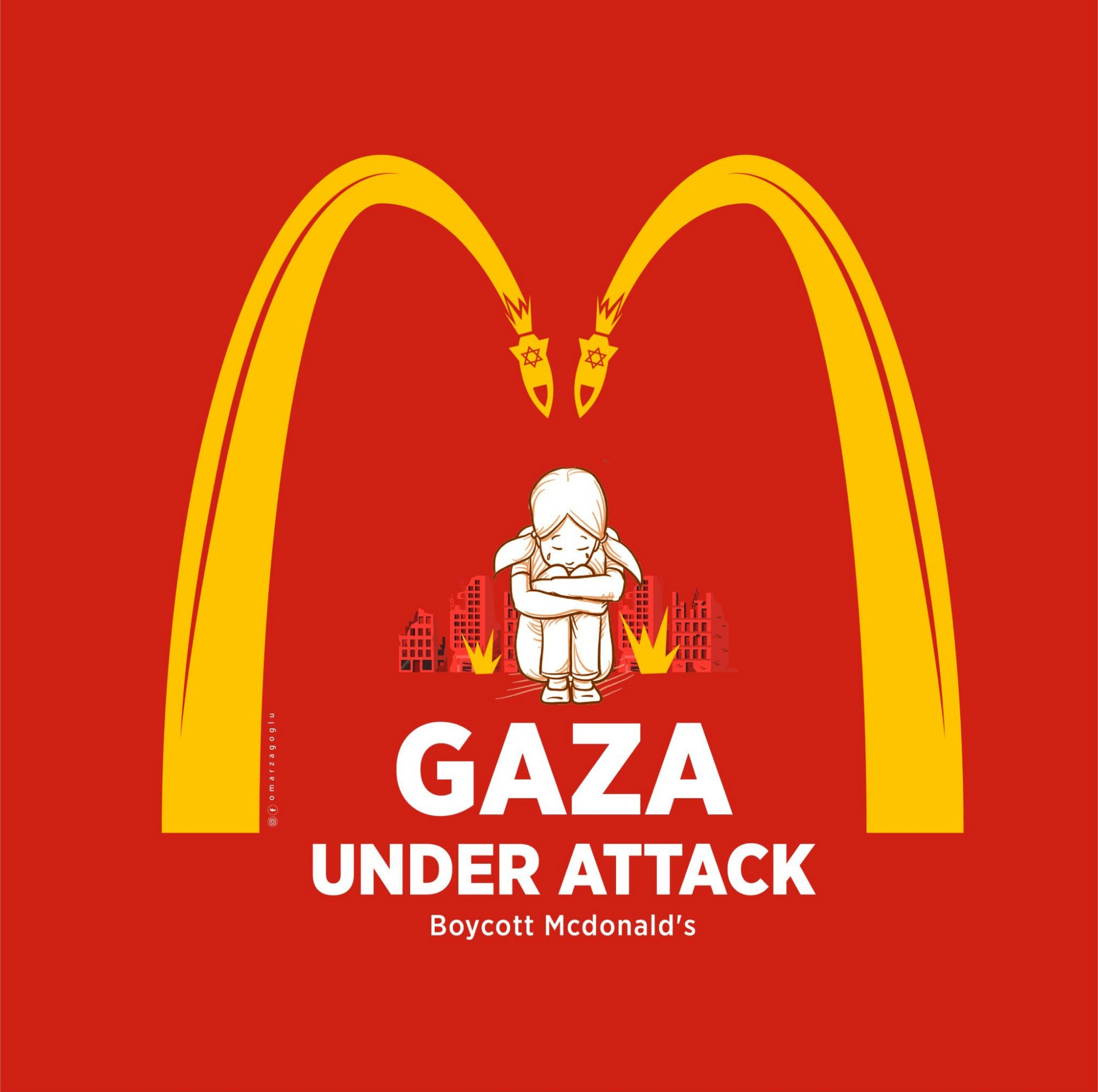
New York, January 6 (RHC)-- The CEO of McDonald’s Chris Kempczinski has admitted that the world’s largest burger chain is facing significant financial losses due to the international anti-Israel boycott movement over the firm’s links to the Zionist regime amid its genocidal campaign in the Gaza Strip.
“Several markets in the Middle East and some outside the region are experiencing a meaningful business impact due to the war ... affecting brands like McDonald’s,” Kempczinski wrote on a blog posted on LinkedIn and reported by media on Thursday.
The big burger chain is one of several multinational corporations to be feeling the effects of international boycotts in the wake of Israel's savage campaign in Gaza which started after the regime was caught off-guard by the surprise Palestinian Operation Al-Aqsa Storm on October 7th.
The boycott campaign against Israeli goods started to gain momentum afterward in Egypt, Jordan and Turkey, significantly hitting Western fast-food giants such as McDonald’s, Starbucks, and KFC.
The top chains have become the target of the boycotts over their perceived pro-Israel stance and alleged financial ties to the regime. Some Western brands have felt the impact of boycotts in Egypt and Jordan that have now caught on in some countries outside the Arab region, including Muslim-majority Malaysia.
In the LinkedIn post, which was part of a New Year update on McDonald’s franchise operations as the firm rewrites its future plan for 2024, Kempczinski described the company's loss to investors as “disheartening.”
He expressed disappointment over the negative impact of the boycotts on business revenue. “In every country where we operate, including in Muslim countries, McDonald’s is proudly represented by local owner operators who work tirelessly to serve and support their communities while employing thousands of their fellow citizens. That local community connection is the genius of the McDonald’s system.”
A boycott campaign against Israeli products over the war in Gaza has severely affected Western fast-food giants.
The current boycott campaign could be considered the latest part of the pro-Palestine Boycott, Divestment and Sanctions (BDS) movement against the Israeli regime. The BDS, which is modeled after the anti-Apartheid movement in South Africa, was initiated in 2005 by over 170 Palestinian organizations that were pushing for “various forms of boycott against Israel until it meets its obligations under international law.”
Thousands of volunteers worldwide have since joined the BDS movement, which calls for people and groups across the world to cut economic, cultural, and academic ties to Tel Aviv to help promote the Palestinian cause. The movement has been so successful in causing economic damage to the regime pro-Israel groups have labeled “an existential threat.”
These attacks and boycotts echo similar scenes from the time of the Second Intifada in the early 2000s and the Iraq War era, which prompted a ban on Coca-Cola that remained in place in many Arab countries for decades, giving its rival Pepsi a market advantage enjoyed to this day.
As Israel continues its bombardment of the Gaza Strip in retaliation for the Hamas attack of Oct. 7, Arabs have again launched a boycott of American franchises in the region to voice their solidarity with the Palestinians and to protest the perceived bias towards Israel.
At the heart of the controversy is McDonald’s — the world’s biggest fast-food chain — after the burger giant’s Israeli franchise announced it was sending thousands of meals to Israeli soldiers stationed on the front line against Hamas.
Arabs condemned the company after videos circulated on social media showing uniformed Israeli Defense Force troops enjoying McDonald’s branded burgers, fries and milkshakes — in stark contrast with the hunger and thirst-ravaged Gazan civilians just across the border.
It is not just McDonald’s that has faced a grilling for its perceived pro-Israel stance. Other American brands, including Starbucks, Burger King, Hardee’s, KFC, Pizza Hut, Papa John’s, and Dominos, are also facing boycotts across the Arab world.
“Arab boycotts of American franchises due to the Palestine-Israel conflict highlight the deep-rooted emotions and political activism that this issue stirs in the region,” Ehsan Amin, a 35-year-old Saudi and private sector worker, told Arab News.

